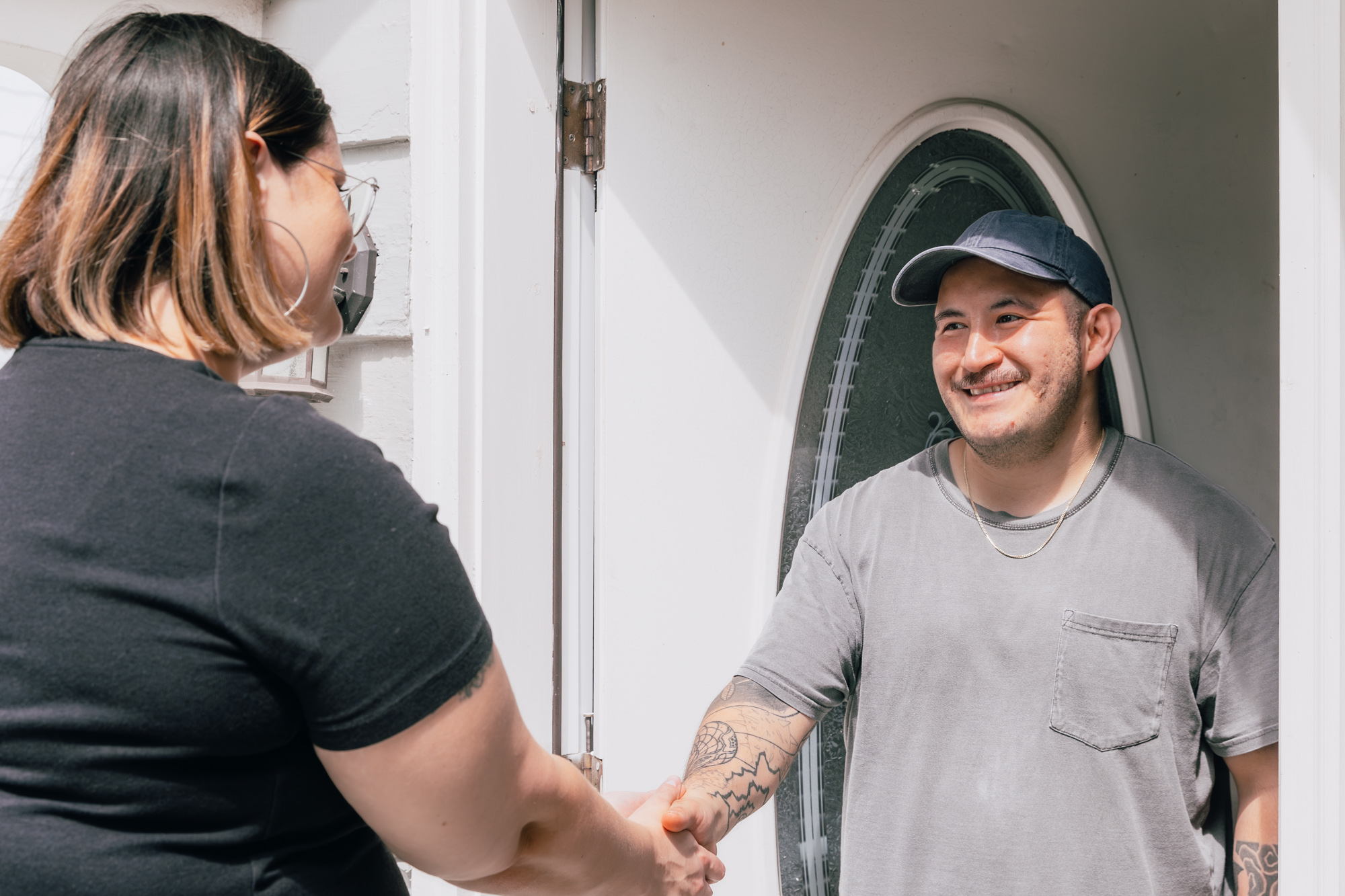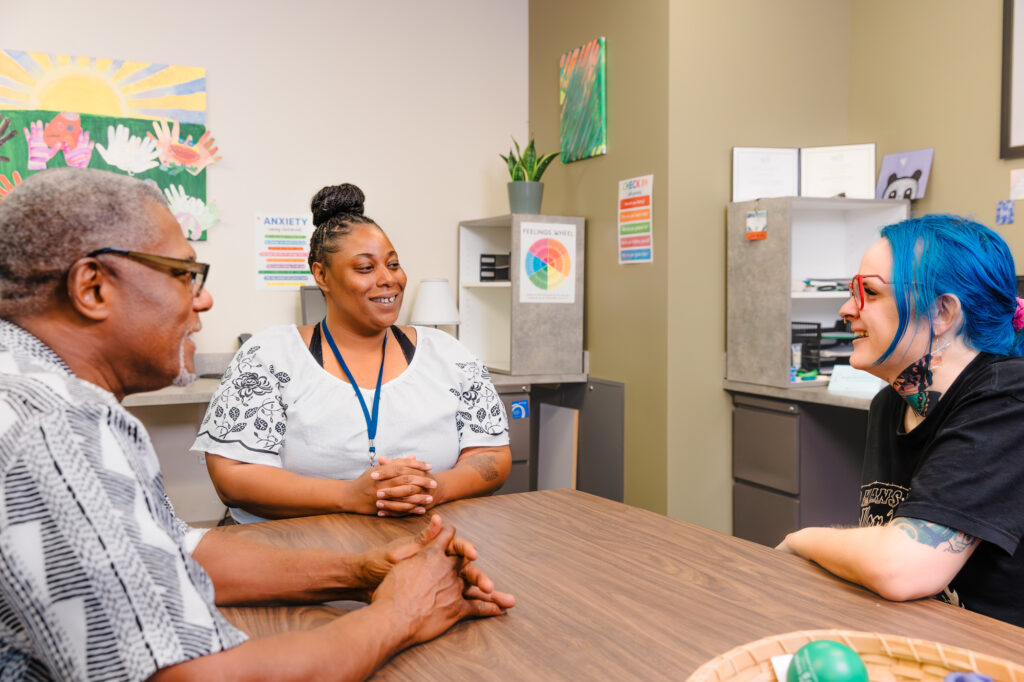No, you don’t have to call the police directly. If you are in crisis and call 911, you can request a CIT officer and co-responder to come out to you. You can also always call the 988 Lifeline and a mobile crisis response team can be dispatched if you need in-person support. But if you’re in immediate danger, you should call 911. When you call 911 or 988, a dispatcher or crisis counselor will assess the situation and determine the best response.

Safe, Supportive Crisis Intervention
Crisis Response With Compassion, Right When You Need It
We Can Help:
Age Range
Any
Locations
Community
Languages Available
English, Spanish, Additional Languages via Interpretation Services
Crisis Intervention Team
Help is Just a Call Away
As part of Wyandot Behavioral Health Network, our crisis intervention team (CIT) pairs trained mental health professionals with specially trained law enforcement officers to respond to behavioral health emergencies in the community.
Our goal is to de-escalate crises on-site, offer immediate support, and connect individuals to mental health services—not jail. If you call 911 when in crisis in Wyandotte County, our mental health co-responders may respond alongside local CIT officers to help. They bring experience, empathy, and safety to every encounter.

A Caring Response at Every Step
Our crisis intervention team co-responders work side-by-side with law enforcement to deliver trauma-informed care during emergencies.
When 911 Is Called
If you call 911 for help in a crisis, dispatch may send a CIT officer and mental health co-responder out to you.
CIT Responds in the Community
When dispatched, CIT teams respond directly to the person in crisis, whether at home, at school, or in public.
You’re Connected to Ongoing Care
Our goal is to ensure you’re safe and referred to services like therapy, case management, or housing support.
"I’ve been receiving services from Wyandot Center for 8 to 10 years and I’ve taken to the services in a good way."
Brandy
"I’ve been receiving services from Wyandot Center for 8 to 10 years and I’ve taken to the services in a good way. They’ve been very helpful in giving me good direction and helping me find coping skills and outlets to work through the bad anxiety or depression moments."
Brandy

"We have worked with PACES for almost a year now, it has really helped our family with our issues with our little guy!"
Ivan
"We have worked with PACES for almost a year now, it has really helped our family with our issues with our little guy! They have a lot of resources for families, I would definitely recommend for other families struggling with their children! "
Ivan
"When I started services at Wyandot Center, I felt like the light I had was gone."
Individual Therapy
Brenda
"When I started services at Wyandot Center, I felt like the light I had was gone. But then I saw peers with my diagnosis who were working and they helped me accept my diagnosis and realize I could get better, that I could find purpose and meaning again."
Individual Therapy
Brenda
Frequently Asked Questions

More questions?
Contact UsOur approach is person-centered, trauma-informed, and completely voluntary. We understand that not everyone may be ready for help right away. Our crisis teams focus on building trust and creating a sense of safety. We listen, offer resources, and stay engaged. We won’t force treatment unless there’s a serious risk to someone’s immediate safety. The goal is always to meet people where they are and at their own pace.
Yes. Our Crisis intervention team in Kansas is equipped to respond to both mental health and substance use crises. Whether someone is intoxicated, experiencing withdrawal, or seeking recovery support, our team can step in to stabilize the situation. We provide immediate care and connect individuals to appropriate detox, outpatient, or long-term recovery programs. We’re here to support the whole person, no matter what kind of crisis they’re facing.
When you call the 988 Lifeline, a trained mental health professional picks up to provide crisis support. They ask questions to understand your situation and figure out the best way to help. Whether it’s for you or someone else, they’ll offer guidance and resources, and if needed, they will connect you with a mobile crisis response team in Kansas for in-person assistance.
CIT co-response and mobile crisis response teams both provide help during mental health emergencies, but they work a little differently. Mobile Crisis Response teams are made up of mental health professionals who come directly to you when help is needed, often after calling 988. Their goal is to support and stabilize without law enforcement involvement whenever possible. When dispatchers recognize mental health needs during a 911 call, a CIT officer and mental health co-responder may respond together to ensure safety and connect people to care. Both approaches are designed to bring compassionate support in a moment of crisis.












